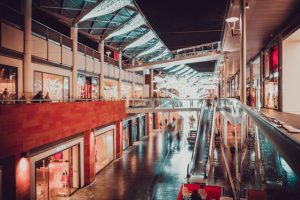Sustainable trends that companies are already adopting as a business model.
Many concerns revolve around the pollution and deforestation that companies are responsible for, treaties are made, goals in progress, corrective actions, but the point is, it is not only the companies’ fault, but also yours. Bring ISO 14001 into your life as an individual and help the planet.
The ISO 14001 – Environmental Management System standard supports companies in reducing environmental impacts and managing legal requirements, however, we must adapt these premises to our daily lives.
Notice, this will not be a technical article, but an inspiration article.
QMS can change a society through ISO standards, and we believe that we should encourage trends that are related to a standard, as in the case of environmental management.
We have reached a point where some changes in consumer behavior are already seen as market trends as a concern with the disposal of materials and unrestrained consumption, but we must accelerate the arrival of this trend. Below I have listed 3 trends to adapt gradually to our daily lives and encourage companies that practice.
 Lowsumerism
Lowsumerism
This concept is the basis of all the others that I will present, it consists of conscious consumption. It is not just today that we focus our dreams on material goods, having a car, owning a house, a cell phone, and that is not wrong, the problem is to make purchases in an unbridled way generating a huge production of materials while the disposal will take decades to be decomposed. Lowsumerism is based on the premise “buy what you want because you need it”, that is, buy only what is necessary and since you are going to buy, let it be something that you like for a long time.
Slow fashion
If lowsumerism values conscious consumption, slow fashion takes that same premise and adapts it to clothing. Unfortunately, the fashion industry has generated a business model that directly affects the planet. Tons of clothes are produced, with materials of dubious quality and methods that affect the environment, sell for a low price on a large scale and shortly afterwards we find ourselves with pieces that in a matter of months are no longer useful and are “outdated” in new trend. Slow fashion consists of the opposite process, pieces that are a little more expensive, with quality materials and that the modeling is not a fad, making the pieces durable and encouraging purchase on a small scale.
This trend has been expanding in several sectors, such as food, in which foods that were previously discarded are reused, such as the “Imperfect fruit” project, where small farmers buy fruits and vegetables that would be thrown away because of appearance are not so attractive to supermarkets, but that have the same quality. They then deliver fruit according to the quantity and frequency you ordered.
Sharing
Buying is a thing of the past, the business now is to share. This trend is the strongest of all, we see this by the success of companies like Uber, Yellow and sugar. It is a way to not buy and still have access to what you want, reducing the amount of pollutants and the purchase of materials you use with low frequency. This trend has been expanding in several sectors, transportation, spaces and even in clothes. Roupateca is a company that encourages a store subscription, that is, you pay a monthly fee and can use all the clothes in the store, but not only you but other people who have the subscription, this makes the pieces in less quantity than if each person had his own and still can choose in a greater variety than if it were his wardrobe.









